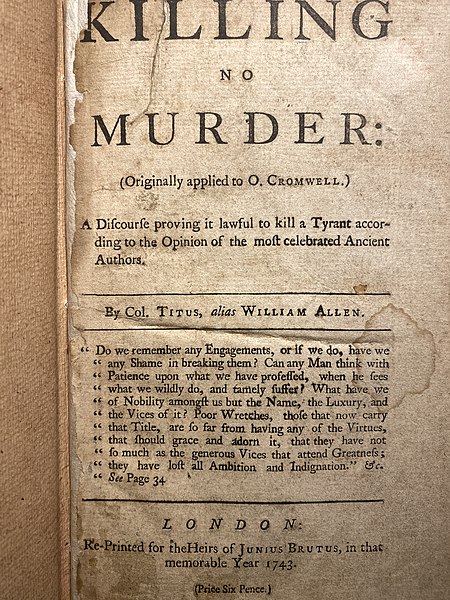Gelon also known as Gelo, son of Deinomenes, was a Greek tyrant of the Sicilian cities Gela and Syracuse, Sicily, and first of the Deinomenid rulers.
Silver coin of Gelon, struck at the Syracuse mint, dated 480-478 BC. Obv: Charioteer and horses, goddess Nike flying above. Rev: Head of Arethusa, encircled by four dolphins.
A tyrant, in the modern English usage of the word, is an absolute ruler who is unrestrained by law, or one who has usurped a legitimate ruler's sovereignty. Often portrayed as cruel, tyrants may defend their positions by resorting to repressive means. The original Greek term meant an absolute sovereign who came to power without constitutional right, yet the word had a neutral connotation during the Archaic and early Classical periods. However, Greek philosopher Plato saw tyrannos as a negative word, and on account of the decisive influence of philosophy on politics, deemed tyranny the "fourth and worst disorder of a state."Tyrants lack "the very faculty that is the instrument of judgment"—reason. The tyrannical man is enslaved because the best part of him (reason) is enslaved, and likewise, the tyrannical state is enslaved, because it too lacks reason and order.

Killing No Murder, cover page, 18th century reprint of 17th century English pamphlet written to inspire and make righteous the act of assassinating Oliver Cromwell
A sculptural pairing of Harmodius and Aristogeiton, who became known as the tyrannicides after they killed Hipparchus and were the preeminent symbol of Athenian democracy
François Gérard, The French people demanding destitution of the Tyrant on 10 August 1792




